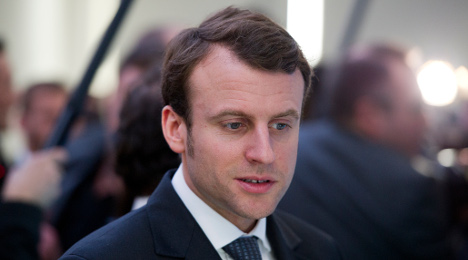Though it seems every day brings more discouraging data about France's economy, a report out on Wednesday provides something akin to good news.
After falling for each of the last four years, France has at last halted its fall down the World Economic Forum's 2014-2015 rankings of the globe's biggest economic powerhouses.
Though the French come in at an unimpressive 23rd place, the 15,000 business leaders whose opinions provide the basis for the report on 144 nations, believe France is becoming more of a contender.
"The government has promised a “competitiveness shock” and is considering a number of business-friendly measures, including a simplification of administrative procedures, in order to revive growth and reduce the country’s stubbornly high level of unemployment," the report said.
They continue: "Traditionally a black spot, the situation of France’s labour market has improved markedly over the year, thanks to increased flexibility, although it still remains a challenge."
The reports authors, whom weighed everything from the local education system to labour regulations, were particularly impressed with France's excellent infrastructure, its educated populace and its embrace of new technology.
Despite the positive feedback the rankings put France behind its neighbors by a significant margin, with the report ranking Switzerland first, Finland fourth, Germany fifth, and the Netherlands, the UK and Sweden grabbing respectively the last three spots in the top 10.
The reality of France's economic situation provides a partial explanation for the gulf, the study's authors said.
Ten things to know about France's economics whizzkid

"The fiscal situation—the second area of major concern—continues to deteriorate," the study said. "The small reduction in the budget deficit is accompanied by an increase in public debt and a downgrading of France’s creditworthiness."
Standard & Poor's credit agency knocked France's credit rating down a notch to AA in November 2013, citing a slow pace of economic reforms. And while Britain's rating was cut a notch last year as well, the authors saw plenty of other good things happening there.
"Overall, the [UK] improves its performance thanks to gains derived from lower levels of fiscal deficit and public debt," the report said.
"In addition to these more favorable macroeconomic conditions, the United Kingdom continues to benefit from an efficient labor market and a high level of financial development, despite the recent difficulties in parts of its banking system."
Fixing France's economy is the number one subject on the lips of the country's national leaders. President François Hollande continues to purse his "Responsibility Pact" which is supposed to spur hiring by cutting taxes on businesses that is to be funded by €50 billion in budget cuts over the next three years.
Yet unemployment rose in July again, which made for the ninth straight month of increases in the number of jobless. Also, revolting members of his cabinet recently prompted a cabinet reshuffle by very publicly slamming the president's economic policies.
in response to the tumult Hollande named whizzkid former Rothschild banker Emmanuel Macron as economy minister, a move that's pleased business leaders. Prime Minister Manuel Valls has also tried to make it clear the government is no longer an enemy to the world of business.
Valls recently made headline when he told a meeting of the country's top corporate leaders that he "loves business."
But whether any of this will result in a return to growth remains to be seen and in the meantime the French people are becoming increasingly angry and hopeless.



 Please whitelist us to continue reading.
Please whitelist us to continue reading.
Member comments